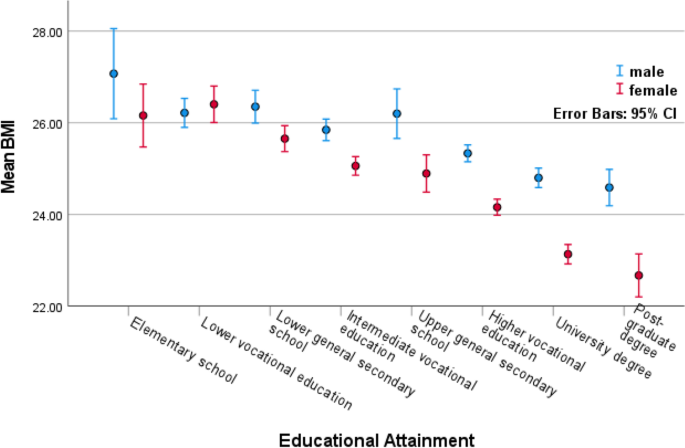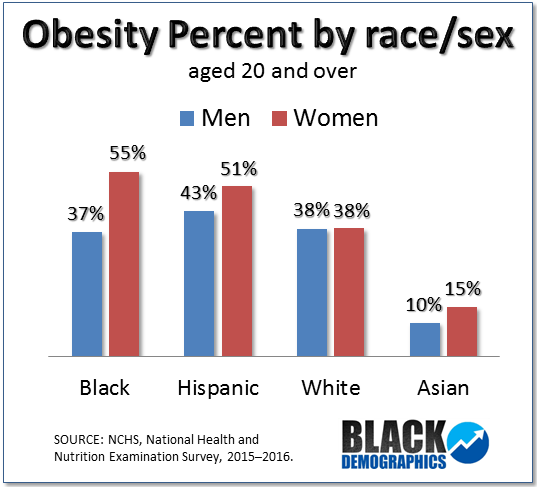I don’t understand how someone who believes in HBD in so far as educational attainment or crime are concerned, it does not apply to obesity too. What is possibly more biological than how the body processes or partitions nutrients (e.g. into energy or fat?), or individual preferences for food:
The least obese states are where liberal white people live.
Conservatives complain so much about glorifying obesity, maybe they should preach to Middle America first. pic.twitter.com/4i2s6L7Ge4
— Richard Hanania (@RichardHanania) June 7, 2024
And from Jayman:
The inverse correlation between obesity and IQ again https://t.co/VvDmnZTEvk
— JayMan (@JayMan471) December 20, 2019
As Jayman observes, empirically, obesity is negatively correlated with IQ–that is, smarter people are less likely to be obese. Environmental interventions, short of banning all junk food, will not work if the problem is inherently biological. What is the biological underpinning of this correlation? Some possibilities:
I posit lower-IQ people have slower metabolisms, by either generating less NEAT (non-activity thermogenesis, such as non-purposeful movement like fidgeting) or having a lower BMR (basal metabolic rate) and REE/TDEE (resting energy expenditure/total daily energy expenditure) relative to body mass–although the evidence admittedly is weak, and this is just a hunch on my part.
Maybe there are genes that link low IQ with slow metabolism. And conversely, genes that link faster metabolism with high IQ. There are two studies that investigate the correlation, if any, between IQ and BMR/TDEE in grade-school subjects, but the studies are from 1936 and 1939 and paywalled, and it’s not possible to infer the results from the abstract. Disappointedly in over 80 years such a study has never been repeated. If educational attainment is used as a proxy for IQ, there is again an inverse correlation. However, this does not establish the causality, nor implicate metabolism.

Regarding NEAT, studies suggests that children with ADHD have faster metabolisms and are less likely to be overweight, and this cannot be explained by being more active:
Results: REE was on average 6.5 kcal/kg fat free mass/day higher in the ADHD compared to the control group (p<0.01). In contrast, the thermogenic effect of food was not different between the two groups (average increase by 16%, p=n.s.). The repeat measurements, an average of 5±1 months apart, were highly reproducible in all subjects. Age and restlessness did not explain the differences in REE. Boys with ADHD had similar BMI-SDS values (mean BMI-SDS -0.10±0.98) as reference groups.
Although this is not the same as IQ, there is some evidence to suggest ADHD is correlated with higher IQ. But IQ can explain high rates of obesity in the South and less-intelligent urban populations. East Asians, who tend to score among the highest on IQ tests, also have the lowest rates of obesity of any ethnic group in the US:

NEAT burns more calories compared to purposeful movement and can account for high-IQ people being thinner despite not playing sports or otherwise not being that active. Doing ‘ten-thousand steps/day’, as often is advised online (so much so it has become a meme), is far less potent than NEAT-based fidgeting. Similar to BMR or IQ, there is no way to raise NEAT; trying to be more active axiomatically makes it purposeful, like exercise, so it does not count.
On Twitter, the smartest people I follow also have low/average BMIs by their own admission, although there are exceptions. For example, @eyeslasho, who is objectively high-IQ, says he has never been overweight. I have observed a similar pattern on Reddit: on fitness ‘subs’, the smartest members tend to be the fittest on either extreme, like middle/long-distance running, which is is slow-twitch dominant, or sprinting/strength sports, which is fast-twitch dominant. Maybe there are genes that correlate high IQ with unipolarity of muscle twitch dominance.
It is likely there are genes that imbue smart people with attributes that extend way beyond just intellect, and that genes that correlate with high IQ also correlate with other beneficial traits. For example, the late hedge fund billionaire and mathematician James Simons when asked about his rationalization for smoking despite the known risks, disclosed he had a gene that protected him from the dangers of his prolific habit, allowing him to live to 86 without health effects–maybe this gene is correlated with IQ too. There are other genes, such as that confer both pain tolerance and a need for less sleep. These two phenotypical manifestations on the surface seem unrelated, but are correlated genetically due to being caused by the same mutation.
Again, confirming my IQ point above, it’s white-collar office-job-types who also tend to be thin despite their jobs not entailing much physical activity. Conversely, less intelligent blue-collar workers, such as construction or road work, are almost all overweight despite having jobs that entail physical activity. Bill Gates was wire-thin in his younger years despite his job literally involving sitting at a computer all day. On his résumé he lists being 5’10” and weighing 130 lbs, which is a BMI of 18.7-borderline underweight.

Mark Zuckerberg, who is objectively high IQ, has a penchant for high-calorie meals, like 4,000-calorie McDonald’s lunches and huge steak dinners, yet he’s not overweight, suggesting a fast metabolism. Of course, it’s possible he does not eat like this everyday, or these photos are staged. He’s also training for mixed martial arts, so he probably burns a lot of calories that way too.
Maybe there are genes that correlate IQ with food preferences. Low-IQ people possibly have a preference for calorie-dense fatty foods, which is related to worse impulse control and high time preference. This is obviously made worse by a modern environment abundant in such calorie-dense foods. Conversely, high-IQ people may have a preference for healthy foods. One such study demonstrates a preference for unhealthy food with lower IQ among children:
The ‘health-conscious’ (salad, rice, pasta, fish, fruit) pattern at 8.5 years was positively associated with IQ: a 1 SD increase in pattern score led to a 1.20 point increase in IQ (95% CI 0.52 to 1.88; p=0.001). There is evidence that a poor diet associated with high fat, sugar and processed food content in early childhood may be associated with small reductions in IQ in later childhood, while a healthy diet, associated with high intakes of nutrient rich foods described at about the time of IQ assessment may be associated with small increases in IQ.
This possibly gets the causality wrong: it’s not that unhealthy food lowers IQ, but that less intelligent people have a preference for unhealthy food. It’s also reasonable to assume that less-intelligent people are not as capable of adhering to diet/nutrition advice, such as calorie-counting and reading nutrition labels, as educational attainment and IQ are highly correlated.